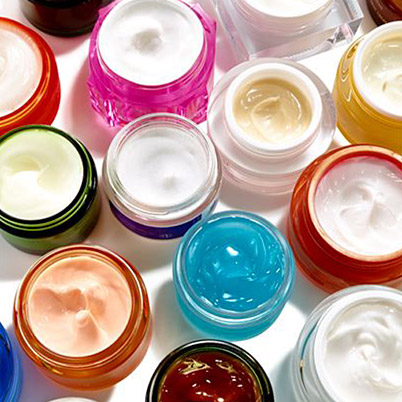Wine, coffee or tea? Drink all of them in the name of your skin. These beverages contain polyphenols, antioxidants that have been shown to protect against skin cancer while making skin look fabulous. One study showed that drinking green tea daily over a period of 12 weeks improved skin elasticity, density, hydration, blood flow and oxygen saturation, while decreasing roughness and flakiness. Pass the tea pot (OK, and the wine bottle), please.
Find it in: cloves, ginger, strawberries, flaxseeds, almonds, olives, artichokes, broccoli
Find it in: cloves, ginger, strawberries, flaxseeds, almonds, olives, artichokes, broccoli
Think of zinc as the always-on-call doctor for your skin. Zinc has been shown to help heal wounds and alleviate acne and other skin issues. Plus, zinc's anti-inflammatory properties keep redness and irritation at bay -- good news when winter winds are rubbing your skin raw. In supplement form, women are advised to take 8 milligrams daily; pregnant or lactating women can take 11 to 12 milligrams.
Find it in: red meat, oysters, spinach, cashews
Find it in: red meat, oysters, spinach, cashews
Known affectionately as the "good fats," omega-3 fatty acids are essential in battling winter skin woes because their benefits are twofold. First, they're jam-packed with much-needed moisture to nourish and strengthen your cells' membranes. The more moisturized your skin's barrier is, the better your skin is at holding in moisture, thereby preventing dryness, wrinkles and fine lines. Omega-3s are also anti-inflammatory agents. Adding more of these essential fatty acids to your diet can help your skin heal after UV damage and prevent inflammatory skin conditions that can be aggravated by harsh weather, such as acne, eczema and psoriasis.
Find it in: Sardines, tuna, salmon, anchovies, walnuts, canola oil, flaxseeds, beans, black currant oil, evening primrose oil
Find it in: Sardines, tuna, salmon, anchovies, walnuts, canola oil, flaxseeds, beans, black currant oil, evening primrose oil
This healing antioxidant has been touted as a miracle ingredient in the skin-care world. Agents like pollution and UV light trigger the formation of free radicals, which attack other cells, damaging cell structure and collagen in the process. The end result? Premature skin aging and dryness in the form of fine lines, wrinkles and age spots. Moisturizing vitamin E, however, strengthens your skin's barrier and neutralizes free radicals.
Similar to omega-3s, vitamin E is a potent anti-inflammatory and a great ally during the cold winter months. The antioxidant also suppresses arachidonic acid, a polyunsaturated fat that worsens inflammatory skin conditions like eczema and psoriasis. If you're taking a supplement, make sure your intake doesn't exceed 1,000 milligrams daily.
Find it in: olives, olive oil, almonds, sweet potatoes, mangos, avocados, apples, asparagus, turnip greens, spinach, sunflower seeds
Similar to omega-3s, vitamin E is a potent anti-inflammatory and a great ally during the cold winter months. The antioxidant also suppresses arachidonic acid, a polyunsaturated fat that worsens inflammatory skin conditions like eczema and psoriasis. If you're taking a supplement, make sure your intake doesn't exceed 1,000 milligrams daily.
Find it in: olives, olive oil, almonds, sweet potatoes, mangos, avocados, apples, asparagus, turnip greens, spinach, sunflower seeds
You might have taken this B vitamin after you chopped your hair into that regrettable pixie cut, as biotin is known for promoting stronger hair. But biotin can also be extremely beneficial for your skin thanks to its role in regulating fatty acid metabolism. Fatty acids help regulate new skin cells from external damage and dehydration. If your body lacks biotin, your skin cells will show that their defenses are down. (Think: cracks on the sides of the mouth, overall itchiness and scaly skin.) Having a true biotin deficiency is uncommon, but working extra biotin into your diet can help moisturize parched skin when the weather outside is frightful. In supplement form, 30 to 100 micrograms daily is sufficient.
Find it in: egg yolks, liver, avocados, oats, Swiss chard, romaine lettuce, almonds, walnuts, chicken, beans, legumes, carrots
Find it in: egg yolks, liver, avocados, oats, Swiss chard, romaine lettuce, almonds, walnuts, chicken, beans, legumes, carrots





